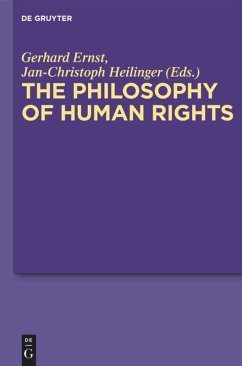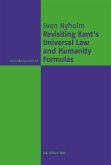The notion of "human rights" is widely used in political and moral discussions. The core idea, that all human beings have some inalienable basic rights, is appealing and has an eminently practical function: It allows moral criticism of various wrongs and calls for action in order to prevent them. On the other hand it is unclear what exactly a human right is. Human rights lack a convincing conceptual foundation that would be able to compel the wrong-doer to accept human rights claims as well-founded. Hence the practical function faces theoretical doubts.
The present collection takes up the tension between the wide political use of human rights claims and the intellectual skepticism about them. In particular two major issues are identified that call for conceptual clarification in order to better understand human rights claims both in theory and in practice: the question of how to justify human rights and the tension between universal normative claims and particular moralities.
Hinweis: Dieser Artikel kann nur an eine deutsche Lieferadresse ausgeliefert werden.
The present collection takes up the tension between the wide political use of human rights claims and the intellectual skepticism about them. In particular two major issues are identified that call for conceptual clarification in order to better understand human rights claims both in theory and in practice: the question of how to justify human rights and the tension between universal normative claims and particular moralities.
Hinweis: Dieser Artikel kann nur an eine deutsche Lieferadresse ausgeliefert werden.








